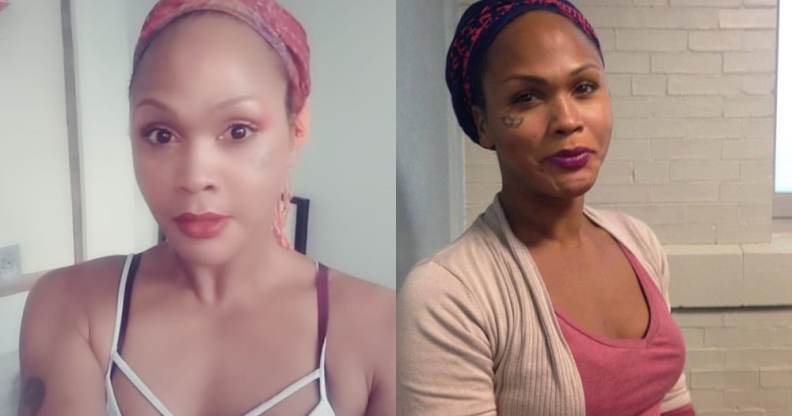Nona Conner, a trans woman who fought tirelessly for sex workers, dies aged 37

Nona Conner. (Facebook)
Nona Conner. (Facebook)
Nona Moselle Conner, a trans woman who tirelessly fought for sex workers and became a towering and magnetic LGBT+ activist in Washington DC, has died. She was 37.
Her death was confirmed by local community leaders on a GoFundMe page raising money for her memorial.
Conner’s cause of death has not been confirmed by officials, but there has been no known evidence of foul play, they said.
“This past Thursday [13 May] we lost our beloved sister, Nona Moselle,” the fundraiser read.
“Nona was a community leader, advocate, mother, and so much more. Nona was deeply loved by so many in the community, particularly DC’s transgender community.
“She was a bright star in so many people’s lives, a hopeless romantic, an enthusiastic cheerleader, a wise soul, and she was loved.
“Her sudden passing has left us gutted. We are grieving.”
Conner was remembered by her colleagues, community members and the countless people she cared for as a torch-bearer who always rushed to grab her pom-poms – and her megaphone – and uplift those around her.
Through her years-long work at the Collective Action for Safe Spaces, a grassroots community group, Conner sought to support the district’s embattled sex workers through decriminalisation efforts, among other campaigns and relief programs.
Nona has been a part of our team since 2016, when our community rallied together to establish a paid position for her. Since then, she’s helped bring forth so much brilliance to our @DecrimNowDC campaign, anti-harassment efforts, and our Safe Bar Collective jobs program. pic.twitter.com/chnUnNCYwL
— Collective Action for Safe Spaces (@SafeSpacesDC) May 17, 2021
I often think about how cruel and unforgiving this world can be.
Late last week, @SafeSpacesDC lost our beloved Program Manager, Nona Moselle Conner. Nona was a friend, sister, and comrade, and she used her words for power to change the lives around her. pic.twitter.com/fHLjk4r1r7— Preston “Side Bunk” Mitchum (@PrestonMitchum) May 18, 2021
“She gave endlessly and without hesitation, always reminding us to ‘be blessed, and a blessing’,” the group wrote in a tribute, “because she believed deeply in giving back to her community of Black trans women and sex workers.”
She continued this work as an organiser for No Justice No Pride, a trans, sex worker-led abolitionist collective that provides safe housing, employment guidance and other mutual aid for sex workers.
We lost one of our closets sisters, roommate, mom, core organizer and so much more to all of us last night. Please keep us in your thoughts and give us space and time to grieve and process.— No Justice No Pride (@NJNP_DC) May 14, 2021
Conner’s autobiography was one of survival. Her hardscrabble life of shaky housing security and sex work gave her a level of empathy and drive scarcely unmatched. Before Conner’s passing, she was working on a storytelling project with the Collective that would have shined a light on the experienced of sex workers during the pandemic.
The art-based project would have involved the poetry Conner penned about her own time as a sex worker, The Washington Post reported.
“Tired of being in bondage,” she wrote in one poem. “Tired of being not heard.” Indeed, throughout her years in the frontline of activism, she stood behind megaphones and microphones, booming her calls for justice and equality at protects and events, before beaming it to her social media followers and GoFundMe pages.
“She didn’t live just for herself,” Conner’s father, Terrance Wilson, told the Post.
“She lived to make life better for everyone that was going through the same struggle and for those who are getting ready to go through the same struggle.
“There are kids who aren’t born yet that are going to go through this.”
In 2016, Conner opened up about the imperilling time she was stabbed. Wielding a clunky butchers knife, a man punctured her repeatedly as he dragged her into a vacated building – simply because she refused a sex act.
But as a trans woman of colour in the US, resilience is an obligation, not an option. “I’m not a victim,” she told the Washington City Paper, “I’m a survivor.
She repeated once more: “I’m not a victim. I’m a survivor.”

